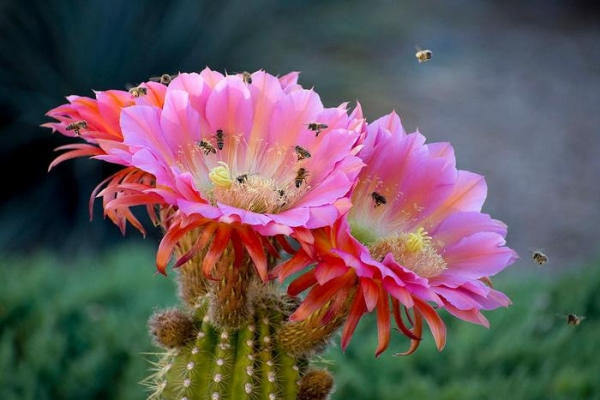Honey bees carrying nectar have the remarkable ability to adjust their flight behavior to avoid overheating when air temperatures increase, according to research led by a University of Wyoming scientist.
Honey bees carrying nectar have the remarkable ability to adjust their flight behavior to avoid overheating when air temperatures increase, according to research led by a University of Wyoming scientist.
Jordan Glass, a postdoctoral research associate in UW’s Department of Zoology and Physiology, conducted the study to determine how high air temperatures may limit the ability of honey bees to forage for nectar. His research findings appear in Proceedings of the National Academy of Sciences, one of the world’s most prestigious multidisciplinary scientific journals covering the biological, physical and social sciences.
Insect pollinators are declining at an alarming rate, due in part to climate change. While it is thought that extremely hot, dry conditions should limit when a honey bee can forage, Glass and colleagues found that these pollinating insects have the ability to remain active in significant heat. In fact, this study showed that honey bees can carry the same amount of nectar without a threat to their lives in temperatures ranging from 77 to 104 degrees Fahrenheit.
Read more at: University of Wyoming
Honey bees draw nectar from a cactus. (Photo Credit: Jon F. Harrison)




